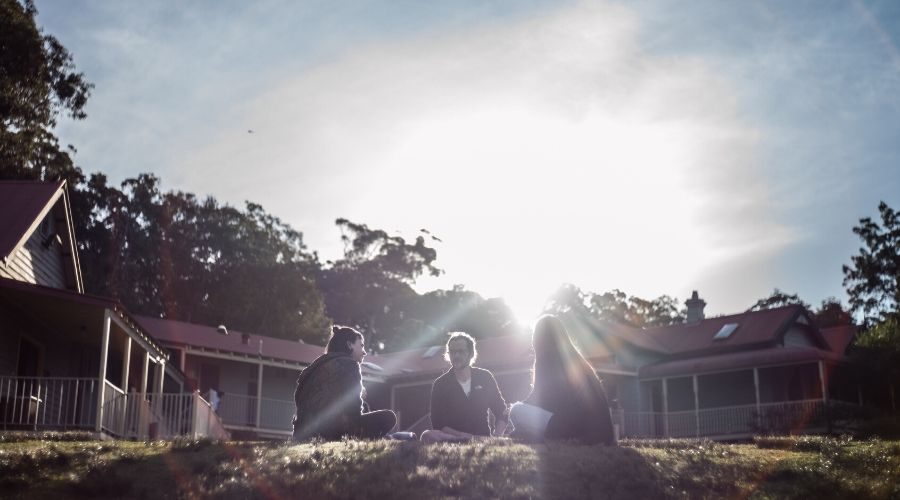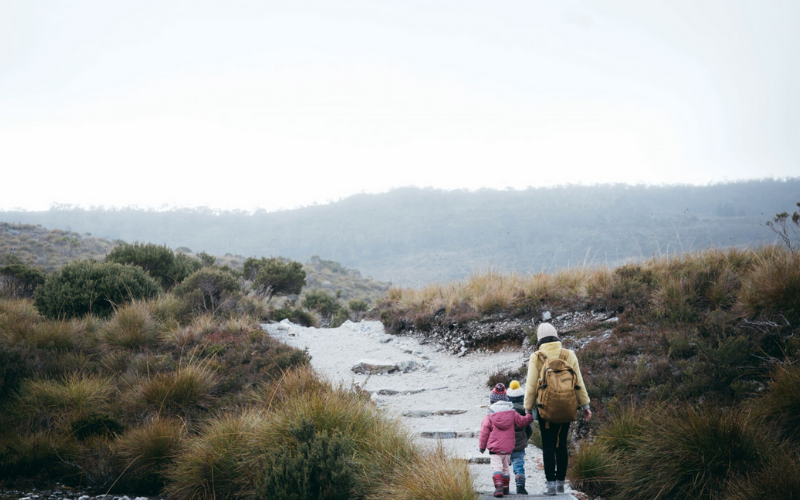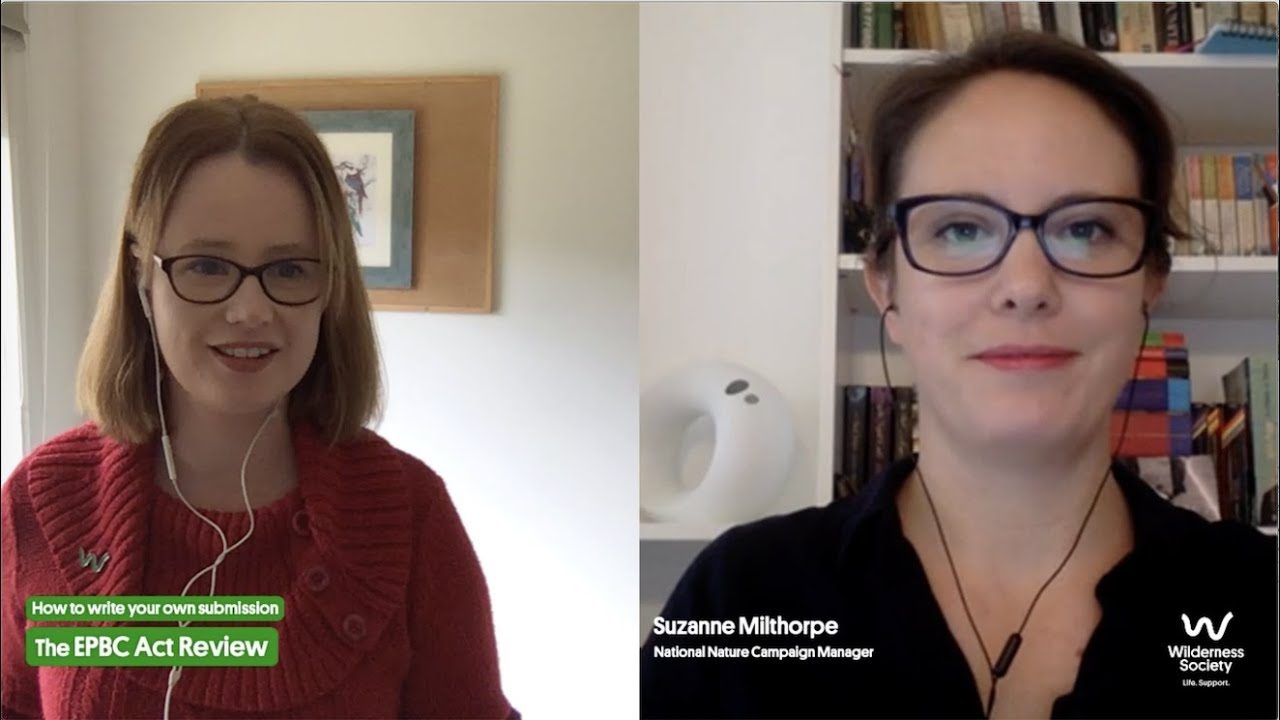
EPBC submission guide
Submissions are now closed
The independent Review of Australia’s environment laws needs to hear your voice
This guide is designed to support you in making a submission into the 2019-2020 EPBC Review. It's a once-in-a-decade opportunity to let the Government know why our existing nature laws are a failure and what needs to change.
Every 10 years, the Australian Government is required to independently review how well our national environment law, the Environment Protection and Biodiversity Conservation Act 1999 (EPBC), is protecting the wildlife and places we love. In October 2019, Environment Minister Sussan Ley announced that the second ten year review is expected to take 12 months and should be delivered to the Minister for the Environment around October 2020, with community input sought between Nov 2019 and 17 April 2020.
EPBC submissions are now closed
The date for submissions was extended Friday from the 17 April to May 1. So you've got another chance. But hurry, better earlier than later.
This is a once-in-a-decade chance to have a real national conversation about how we protect our environment. The Wilderness Society has made a submission to the review, and we want to get as many community submissions as possible into the Review to:
- Hold the Government to account for their action (or lack of action) in fixing Australia’s environment protection system in response to the 2019-20 summer bushfires;
- Ensure the Independent Reviewer and Review Panel hear your lived experience of nature destruction, understand your concerns and the solution we know Australia’s nature needs;
- Balance the voice of vested interests who want to see Australia’s nature protections weakened even further; and
- Use the big opportunity of the Review to call on politicians and decision-makers to take concrete action to end our extinction and deforestation crises.
How to do your EPBC review submission
What you should include in your submission

The broad questions that the Review is seeking to answer are:
- Is the EPBC effectively delivering what was intended?
- Is it up to future challenges?
- How well is the Act being administered (e.g. enforcement, funding, implementation etc)?
- What are the priority areas for reform?
- What changes are needed? Why?
Use this example submission as a guide to writing your own. Submissions don’t need to be long - aim for between 300-600 words if you can.
Step 1: Start by addressing the reviewer and panel
Dear Professor Samuel and Independent Review Panel,
I would like to make a submission into the 2019-2020 Independent Review of the EPBC Act. This submission will cover [add any of the below points you will address and remove any that you won’t address in this submission]
- The issues I see with how the EPBC Act fails to protect the environment, especially matters of national environmental significance;
- The lack of community consultation under the current Act
- What needs to change to ensure the EPBC Act works as it was intended
Step 2: Introduce yourself and describe your connection to nature
- What do you connect most with in nature? (eg. forests)
- Why? (eg. love camping)
- What is an issue affecting that part of the environment you love? (eg. deforestation). Be specific: is there something you've seen or observed personally?
Tip: The more personal your submission is, the more powerful its impact. This section should account for the bulk of your submission.
Step 3: The solution
What do you want the independent review panel to do about this problem? Give them the solution - refer to one OR several of the recommendations below.
Recommendations (solutions)
Tip: Select any or all of these, that link back to your concerns (you can copy and paste them straight from this document)
- Australia cannot return to business as usual after the catastrophic 2019-2020 summer bushfires. The same laws and policies that have failed wildlife over decades and done little to address the climate crisis can’t be relied on to help us recover after the bushfires.
- Create a new National Environment Act that enshrines Federal Government leadership over nature protections, contains real safeguards against extinction, including ending the destruction of endangered species habitat, and sets out clear rights of appeal and consultation for communities.
- Develop and implement recovery plans for threatened species, which the Act has largely failed to do in its 20 years.
- Establish an independent National Environment Commission to ensure we develop a fit-for-purpose, coordinated national (state and federal) system of environmental protections and policy responses necessary to support restoration of our environment to health and ensure regulatory resilience to future impacts, publicly report every year on the impact of conservation action and funding, and show clearly whether natural values are recovering.
- Establish an independent Environment Protection Agency to act as watch-dog over government, and ensure our laws are properly enforced.
- Ensure that sufficient money, people and resources are put in place so that nature can recover.
- Ensure a central role for community, with guaranteed rights and participation in planning and decision-making.
Step 4: Thank the panel, include your name, contact information and photo
Thank you for your consideration of my submission, if you wish to contact me about the contents of my submission I can be reached at [email]
Sincerely,
[YOUR NAME]
[PHOTO OF YOU IN NATURE]
Tip: When reviewing your submission, make sure to delete any text from this guide in your submission that does not sound like your own words.
Step 5: Reference your facts
Reference any facts that you included in your submission to support your story. If you’re unsure about how to reference properly, we’d recommend using a site like Cite This For Me, which does most of the work for you.
Unsure about where to get the facts from? Think about news sources you trust, recent reports on the issue you’re speaking about (e.g. deforestation) or reputable organisations.
Tip: Remember, this isn’t an academic report so only use facts where they support your claims or experiences .
Step 6: Make your submission online and let us know
a.) Email a copy of your submission to your local Wilderness Society Organiser or to Lead Community Organiser Kaine Johnson...now you’re ready to submit!
b.) Go to the EPBC Act Review submission site.
c.) At Question 7, add your attachment - the submission document - ignore the other questions.

Why is your voice important?
After our catastrophic summer of bushfires, including the loss of millions of native animals and hectares of some of the most biodiverse forests in the world, it is important that the Government hears the call for nature laws that work.
The Environmental Protection and Biodiversity Conservation Act (EPBC Act) is our most significant piece of federal environmental legislation, and it’s up for its once in a decade review. The current review of the failed EPBC is an opportunity to make sure that the government hears your stories about why nature must be protected and understands your concerns.
You don't need technical expertise to understand that the current laws are failing us. The Review needs to hear your lived experience about the natural values you love and the changes you’ve seen in them.
Your stories powerfully illustrate the larger problems we’re talking about and will demonstrate the breadth and depth of Australians' love of their natural world. This guide is designed to help make the submission writing process as simple as possible. That said, the more unique your submission is the more powerful it is, so we encourage you to personalise any of the suggested text below.
The most important thing is to be concise and get across your thoughts and lived experiences, rather than external expertise: your submission will not be more effective because it is long, overly technical, or opinionated.
Double (or triple!) your impact
Get more impact out of your submission by sending it to other stakeholders who can influence the outcome of the Review (e.g. your MP, Senators) so that they hear and respond to your concerns.
Don’t just ask them to read your submission; include a clear request for action on their behalf, such as writing to the Australian Environment Minister asking them to ensure the Review addresses the issues you raise in your submission.
You can also encourage and support family, friends and community members to put in their own submissions. Give them this guide and explain why you’ve put in a submission and why it’s important to you: this is a great opportunity to engage them on the issues you care about!
Make your voice heard by going to the homepage for the Review and clicking on 'Make a submission'.
Help us tell the story of an engaged and caring Australia

You will be among hundreds of Wilderness Society supporters who will be making a submission, and this in itself can inspire others to voice their concerns.
Make sure you let us know when you make a submission, and any response you get. We also want to know when you forward your submission onto any MP or third party. This will help us communicate the momentum gathering behind the need for a thorough and credible review process.
Your Movement for Life organiser has been well informed on our theory of change, and how to help you ensure you get maximum benefit from your submissions so keep them in the loop.
Further information
You can find more information via these channels:
- The official EPBC Act Review page
- Write to us at [email protected] for our guide on “how to write effective submissions” and other materials that will help you impactfully engage with decision makers
- Join one of our Movement for Life teams to meet like-minded people and receive free training
